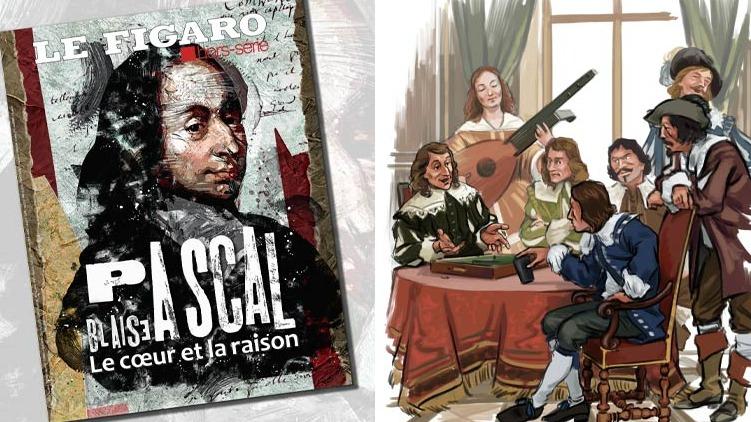This article is taken from
Figaro Hors-Série: Blaise Pascal, heart and reason.
We must seek consolation for our ills, not in ourselves, not in men, not in all that is created;
but in God.
(…) Do not consider a man as having ceased to live, whatever nature suggests;
but as beginning to live, as truth assures.
The words that Blaise writes to his sister Gilberte are a cry to heaven.
He alone can be an answer to this vale of tears.
Étienne Pascal, their father, has just died on September 24, 1651. Blaise knows what he owes him.
“
If I had lost it six years ago, I would have lost myself, and although I believe I have a less absolute need for it now, I know that it would still have been necessary for me ten years, and useful all my life.
".
How to live without him?
“
One of the strongest (…) charities towards the dead is to do the things they would order us to do if they were still in the world.
If Etienne were still there, he would take part with his son in scholarly debates.
Blaise accepts the Duchesse d'Aiguillon's invitation to give a scientific lecture.
We are in a hurry.
The lecturer is called upon again, his qualities as a science teacher are praised by the gazette La Muse historique: “
I met the other day / Inside the little Luxembourg, / In what a beautiful place, blessed by God, / I found myself great company, / (…) To see the marvelous effects / Of a work of arithmetic, / Differently of mathematics , / Where, by an unequaled secrecy, / Its rare author named Pascal / Showed a speculative / So clear and so persuasive / Touching the calculation and the throw, / That we admired the great project.
/ He still made on fountains / Demonstrations so full / Of wit and subtlety / That we saw well, in truth, / That a very fine genius he possessed, / And that he was called Archimedes .
»
Read alsoThe editorial of Le Figaro Hors-Série: Blaise Pascal, a man for eternity
The Parisian Archimedes found in Fermat, a magistrate from Toulouse and a brilliant mathematician, an accomplice with whom he conversed on the "
parties
", ancestors of probabilities: "
Our dirty tricks," Fermat wrote to him, "still continue and I am as you in the admiration of which our thoughts fit together so exactly that it seems that they have taken the same road and made the same path.
After a few months spent with his sister Gilberte in Clermont, during which he thought of getting married, Pascal returned to Paris and reconnected with the Duc de Roannez, a great mathematician, whom he had known as a child. .
They become friends and associates and get involved in a business of draining the Poitou marshes, to which Pascal brings his rare skills in hydraulics.
To live in the big world that he now frequents, and into which he has slipped with an ease that commands the admiration of many observers, he has to lead the way.
Hoping to earn a few soils, he buys, to rent it, a shop in the Halle au Blé.
Roannez introduced him to the joyful company of the libertines, whose brilliance he was to appreciate, without however sharing their position as free thinkers: the Chevalier de Méré, an educated socialite and charming character, a social animal sought after for his savoir-vivre, and whose the passion of the game will inspire in Pascal his famous "
bet
», by which he will invite players to choose the bet that can bring them the most, in this case, the choice of God;
Damien Miton, wit and famous player, who like Méré theorizes and embodies the ideal of the honest man, a morality of human completeness, who is satisfied with the pleasures of life and knowledge.
The young mathematician feels a sincere admiration for them (“
It is necessary that one cannot [say] neither he is a mathematician, nor a preacher, nor an eloquence, but he is an honest man. This universal quality alone pleases me.” Thought
532 ).
However, the emptiness of the world without God digs into him a little more the sensation of the abyss.
If Pascal is intoxicated, he does not believe himself, deep down, in his own game.
The others are embedded in the world?
He feels detached from it, deeply.
The most brilliant seductions, the tastiest pleasures have an aftertaste of ashes.
Blaise Pascal, heart and reason
, 164 pages, €13.90, available on newsstands and on
Le Figaro Store
.
Cover after the posthumous portrait of Blaise Pascal by François II Quesnel, after 1662 Figaro-Hors-Série



